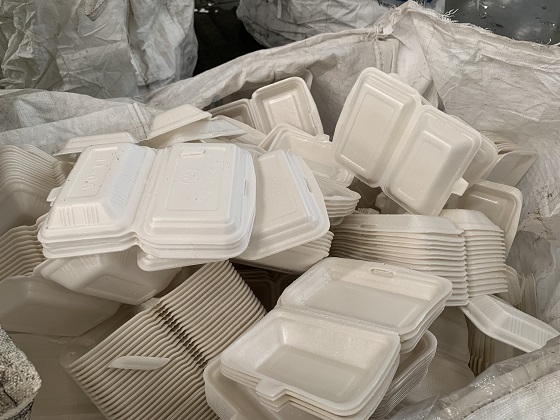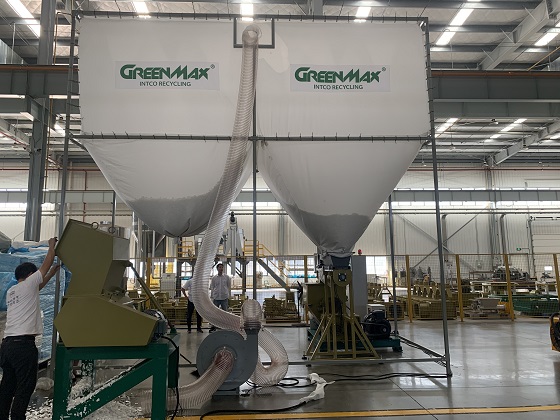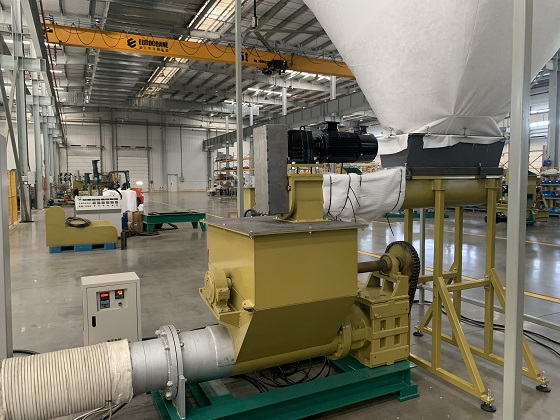GREENMAX helps the UK better recycle PSP boxes
The Department for the Environment estimates that 2.7 billion pieces of disposable cutlery (most of which is plastic) and 721 million disposable plates are used in England every year, but only 10% are recycled. If the 2.7 billion pieces of cutlery were lined up, they would circle the earth more than eight and a half times (based on a 15cm piece of cutlery).
The UK will ban a range of single-use plastic products such as cutlery, plates and bowls from October 2023 in a bid to limit plastic pollution, the Department for the Environment has announced.

According to the BBC, single-use plastic plates, bowls and trays, as well as certain types of cups and boxes made from polystyrene, will be banned from being used and sold in stores, restaurants, hotels and also takeaway food. The period up to October will serve as a transitional adaptation period, when businesses that do not comply with the ban will be fined and, in the case of repeat offenses, held criminally liable.
Britain’s environment department said in a statement that the decision was made following a public consultation conducted by the government, with 95% respondents supporting the ban. The government said Britain uses 2.7 billion pieces of disposable cutlery a year, most of which are plastic, but only 10 percent end up being recycled.
Britain’s Environment Secretary, Therese Coffey, said she was “proud of the efforts made” to limit plastic pollution and protect the oceans. She also mentioned that a ban had previously been imposed on plastic products such as “marbles, straws, stirrers and swabs”. She also said that sales of plastic bags in hypermarkets had plummeted by 97%. However, the ban does not apply to plates and trays used for “pre-packaged dishes and food in buffets”.
The British government is also working on new initiatives targeting plastic flowers, coffee filters and pouches, according to the report. Environmental groups congratulated the British government on the plastic ban, but argued that “we are already drowning in plastic, and this decision only acts as a mop and doesn’t turn off the taps completely”. In an announcement, the environmental group said, “We need the government to adopt a more robust strategy to reduce plastic, and to get more items into the reusable system”.
The ban on plastic straws, drink stirrers and cotton buds comes into force in England in the fall of 2020. Meanwhile, a plastic packaging levy has been introduced in April 2022. It imposes a higher rate of tax on plastic packaging with a recycled content of less than 30%.

The UK government has taken a number of steps to reduce plastic pollution in the past, including banning microplastic particles in personal care products in 2018, restricting the supply of plastic straws, stirrers and cotton buds in 2020, and introducing a plastic packaging tax in April 2022. Going forward, the government plans to implement a recycling program for beverage containers and streamline the recycling process to further advance sustainability efforts in both the public and private sectors.
The ban on single-use plates and cutlery is part of a broader push by governments around the world to curb the production and use of single-use plastics. Last March, the United Nations began work on the first-ever global plastic pollution treaty. While the agreement won't be finalized until 2024 at the earliest, it could be one of the most significant efforts to curb climate change since the 2015 Paris agreement.
The reasons for low recycling rate of PSP:
1. The low market value of loose PSP
The used PSP products or that are out of date generally are useless and valueless to the market. If PSP material is untreated, its looseness is the reason why most recyclers reject it.
2. The difficulty of separating PSP from the waste stream
Most PSP materials are used as food boxes and cups. But after using it for containing food, PSP is so dirty to be thrown into common garbage bins, not recyclable bins. And it costs a lot of manpower and material resources to collect this bulky material.
3. The high transporting fees
The PSP is lightweight, but relatively bulky and takes up space. People who decide to collect and recycle PSP cannot get the benefit they deserve because the cost of transportation alone is very high.

The best solution for PSP foam food container recycling:
The PSP Recycling process is carried out with the help of technologically advanced machines, such as the GREENAMX PSP Hot Melting Machine. Most of the PSP foam produced in daily life needs to be cleaned before it can be recycled, so these PSP foams will contain a lot of moisture. When recycling foam containing a large amount of moisture, it is very challenging for recycling equipment. GREENMAX has developed a new hot melt machine for recycling PSP foam containing a large amount of moisture. This hot melt machine adopts the most advanced heating technology, and also applies a new feeding mode to ensure uniform feeding. The openings under the heating tank can help the removal of water vapor and prevent the pressure inside the machine from being too high.
So far, the GREENMAX PSP hot melting machine has reached Europe, the United States, Africa, and all over the world where it has helped them to deal with PSP foam container waste. GREENMAX PSP hot melting machine has acquired many companies’ trust. With the help of the GREENMAX PSP hot melting machine, those problems mentioned above can be well solved.
